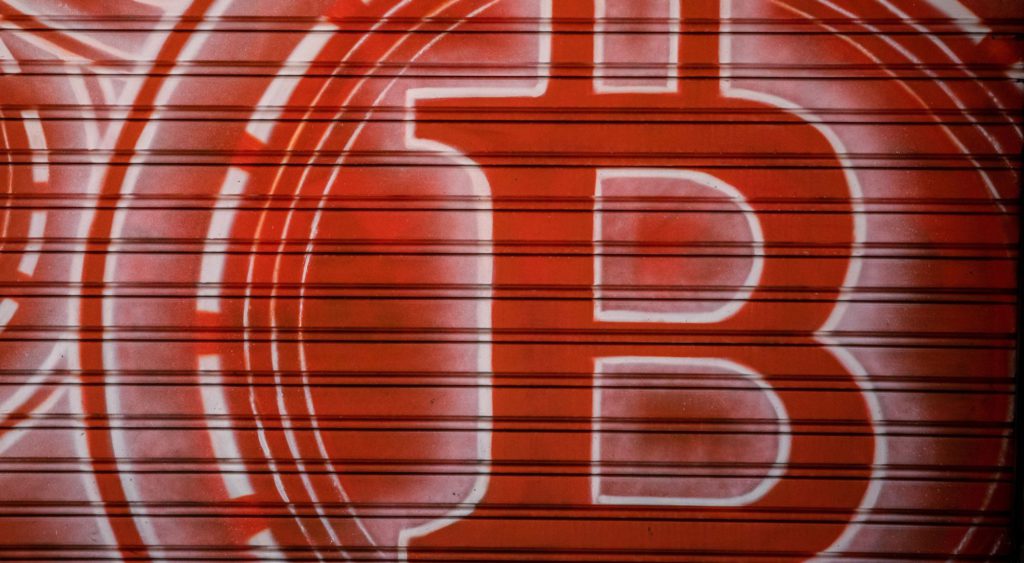Manhattan prosecutors say they seized almost $3.4 billion in Bitcoin from a property developer who scammed the dark web marketplace Silk Road over a decade ago.
(Bloomberg) — Manhattan prosecutors say they seized almost $3.4 billion in Bitcoin from a property developer who scammed the dark web marketplace Silk Road over a decade ago.
In what’s now the second-largest crypto seizure for the Department of Justice, investigators discovered more than 50,000 Bitcoin in the home of Georgia resident James Zhong in a raid carried out in November 2021. Zhong, a 32-year-old computer science graduate, was arrested and pleaded guilty to wire fraud last week.
The raid was carried out as part of an investigation led by the US Attorney’s office in Manhattan into the whereabouts of thousands of missing coins traceable to Silk Road founder Ross Ulbricht. At the time of the seizure, Bitcoin traded at over $60,000, boosting the value of the loot for prosecutors by billions of dollars. The digital currency now trades at about $21,000.
Surge in Crypto Seizures Has Cops Hunting for USBs, Passwords
Zhong’s offenses date back to 2012 when he defrauded Silk Road, an online marketplace notorious for the trading of drugs and cryptocurrency, out of more than 53,000 Bitcoin. He created a string of Silk Road accounts to conceal his identity and triggered 140 transactions in quick succession to trick the platform into releasing Bitcoin into those accounts, according to court filings. Zhong then transferred the digital currency into other accounts under his control.
“For almost ten years, the whereabouts of this massive chunk of missing Bitcoin had ballooned into an over $3.3 billion mystery,” Damian Williams, US Attorney for the Southern District of New York, said in a statement. “Thanks to state-of-the-art cryptocurrency tracing and good old-fashioned police work, law enforcement located and recovered this impressive cache of crime proceeds.”
Prosecutors say 50,000 Bitcoin were found in an underground safe and a single-board computer in a popcorn tin under a pile of blankets in Zhong’s bathroom closet. He has subsequently surrendered over 1,000 more Bitcoin, and has agreed to help prosecutors access the remaining coins and provide the technical assistance to do so.
Zhong’s attorney Michael Bachner said his client had returned “virtually all of the Bitcoin he improperly acquired.”
“Mr. Zhong pleaded guilty to conduct that occurred over 10 years ago when he was just 22 years old,” Bachner said in a statement. “Given the increase in Bitcoin value over the last decade, the value of the Bitcoin he returned exponentially exceeded the value of the Bitcoin he took.”
The coins he stole were proceeds stemming from Ulbricht’s crimes, so there’s no victim restitution for Zhong to pay, according to Zhong’s plea agreement. Customers of Silk Road, which was shut down by US agents in 2013, used Bitcoin to openly traffic drugs, wash dirty money and purchase hacking tools. Ulbricht was convicted in 2015 of seven criminal counts and is serving life in prison.
The sting to take down Ulbricht and his cyber-bazaar was seen as a major win for law enforcement at a time when it was just beginning to grapple with the convergence of cryptocurrency and crime. While the US seized 175,000 Bitcoins from Ulbricht’s Silk Road, prosecutors suspected tens of thousands of digital coins that the site commissioned were still missing. They scored a win in 2020 with a billion-dollar seizure of 69,000 Bitcoins from a hacker who had stolen from Silk Road before Ulbricht’s arrest.
Court records show Zhong studied computer science at the University of Georgia before starting a real estate business, RE&D Investments, with Memphis developer Clayton Kemker in 2019. In an interview, Kemker said that Zhong told him he’d amassed his Bitcoin fortune through “ground-floor mining” just as the digital currency began to take off.
“This is definitely a surprise to me because I thought he just was one of the Bitcoin guys who got in early and got lucky,” Kemker said by phone. He said that Zhong owned 80% of their business while Kemker, who held the remaining share, provided sweat equity.
Construction was underway on one of their developments when Zhong called Kemker last year to tell him law enforcement had raided his home. “He said they seized all of his crypto so he was insolvent and at the time he was covering the operating costs months to month,” Kemker said. “He just kept saying ‘I can’t talk about it.’”
Kemker said he offered to buy Zhong out of the business twice in the past year in a bid to keep the projects going, but that his attorneys wouldn’t agree because they didn’t know how the case would play out in court. In September, a group of creditors, including building contractors and Kemker’s father, a construction consultant, filed involuntary bankruptcy proceedings against RE&D Investments in federal court, claiming the company owed them $1.8 million for unpaid work.
As part of Zhong’s plea agreement for the Silk Road fraud, he signed over his 80% stake in the company to the government. Prosecutors also seized $661,900 in cash and 25 Casascius coins worth 174 Bitcoin, according to the forfeiture order. Zhong was released on $310,000 bond on Friday.
The case is USA v. James Zhong, 22-cr-00606, US District Court, Southern District of New York (Manhattan).
More stories like this are available on bloomberg.com
©2022 Bloomberg L.P.











